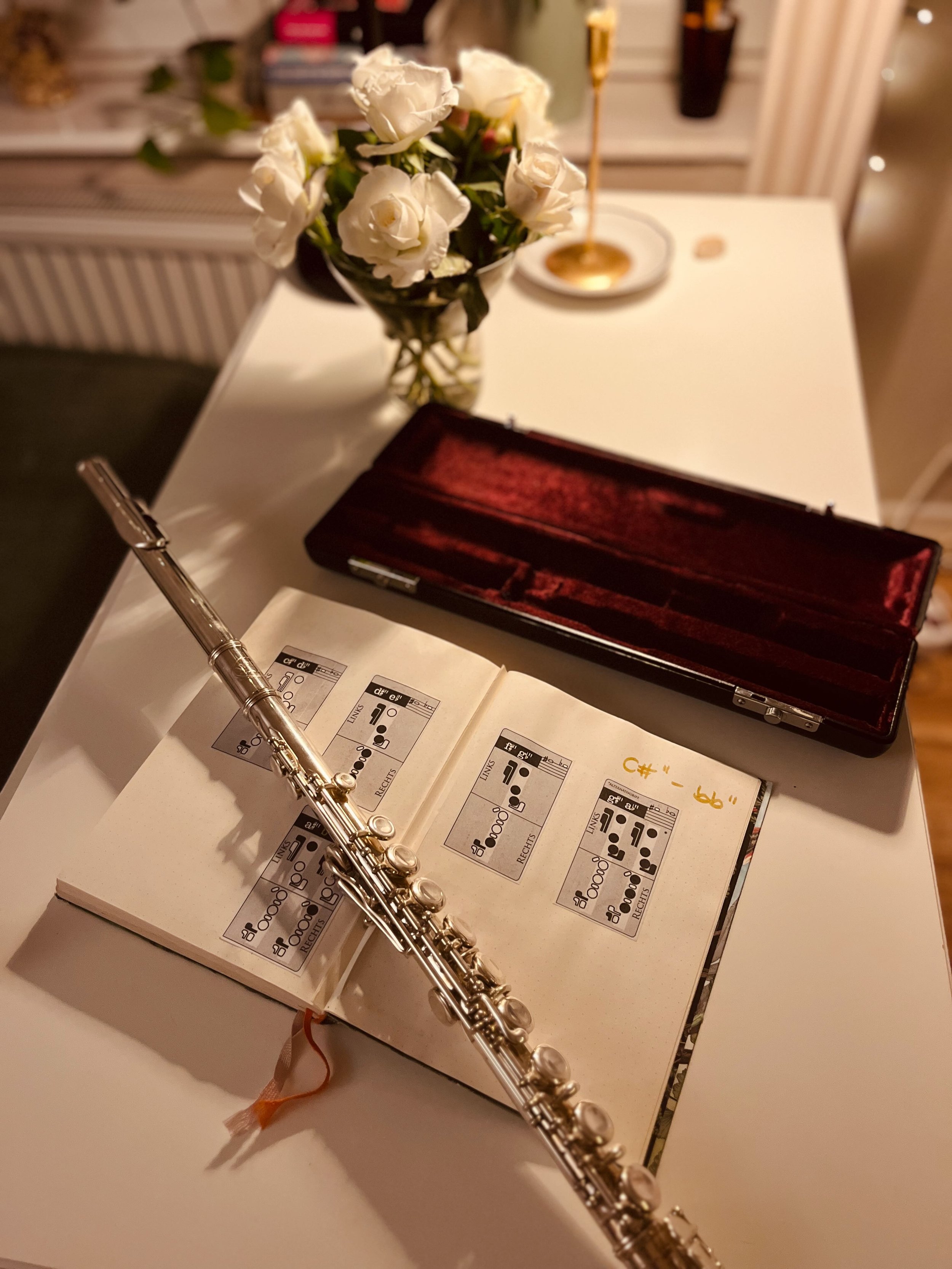The Power of Consistency in Practice: Why 10 Minutes a Day is More Effective Than 2 Hours Once a Week
When it comes to learning a new skill—whether it’s playing the guitar, mastering a language, or becoming proficient in any craft—the key isn’t just effort, it’s consistent effort. In the fast-paced world we live in, it's easy to get distracted by the idea of intensive, short-term bursts of practice, hoping to see immediate results. But in reality, it’s the small, consistent actions that yield the greatest progress over time.
I’ve been playing guitar now for roughly 4 years and have made every mistake in the textbook. But one of my biggest pitfalls, was believing that intense burst of practice, would lead me to rapid results. However this logic is faulty in many ways. Today I want to share some of my experience with you, so you can practice in a wiser and more effective and patient way than I did, leading you to more satisfying results.
The Math Behind Consistency: How Small Efforts Accumulate Over Time
Let’s start with a little math to illustrate the difference between consistent practice and sporadic, intense practice. Imagine two guitar players:
Player A practices for 10 minutes a day over the course of one year.
Player B practices for 2 hours every day for a month, but then doesn’t touch the guitar for the rest of the year.
At first glance, Player B’s method may seem more intense and likely to yield faster progress, but the numbers tell a different story.
Player A practices for 10 minutes every day, which is:
10 minutes x 365 days = 3,650 minutes of practice in a year, or roughly 60.8 hours.
Player B practices for 2 hours a day for one month (30 days), which is:
120 minutes x 30 days = 3,600 minutes of practice in a year, or exactly 60 hours.
While both players have practiced a similar number of hours, Player A’s consistent effort spreads that practice over the entire year, allowing skills to develop, muscle memory to form, and gradual improvement to take root. Player B, on the other hand, experiences a month of rapid progress, but without consistent reinforcement, they may lose much of what they’ve learned over the following months.
The key point is that consistency not only helps you retain skills but also allows your knowledge to grow exponentially, as regular practice builds upon itself. Like compound interest in a savings account, the small investments you make daily can result in exponential growth over time.
I the beginning of picking up the guitar, I committed to practicing 2h everyday - amounting to roughly 700 hours in my first year of playing. While I did make a lot of progress in that time - I also suffered from feeling burnt out, and just “mechanically making” music. In that time I did not feel much connection to the music I was playing, but was more focussed on getting in the hours. I was so focused on building technical skill, that I completely lost out of sight, that especially medicine music is about feeling the connection of the musician has to their music.
THE ALCHEMY OF MUSIC
Consistency in practice is more powerful than we often realize. It’s the small daily efforts that lead to big progress
Building an Identity as a Musician Through Consistency
One of the less obvious but deeply significant benefits of daily practice is that it helps to shape your identity. When you practice for just 10 minutes every day, you are not just improving your skill—you are reinforcing the idea that you are a musician. This shift in identity is powerful.
Daily practice doesn’t just become something you do; it becomes part of who you are. Each time you pick up your instrument, even for a short session, you reaffirm to yourself, "I am someone who plays music." Over time, this sense of identity deepens, and playing music becomes a natural, non-negotiable part of your day, much like brushing your teeth or eating a meal.
On the flip side, if you only practice sporadically, or in intense bursts, you’re less likely to build this strong sense of identity. Practicing only when you have a big block of free time makes it harder to see yourself as a musician, and easier to rationalize skipping practice when life gets busy.
The Misleading Nature of Social Media: Why We Only See the End Results
In today’s world, where we are constantly flooded with images and videos on social media, it’s easy to fall into the trap of thinking that great musicians are born with natural talent. We see short clips of someone playing a beautiful piece on the guitar, but what we don’t see is the years of consistent practice that led up to that moment.
The problem is that social media emphasizes the end result rather than the process. It can be disheartening to scroll through videos of people effortlessly mastering their instruments while you struggle with the basics. But remember: what you don’t see is their hours, days, and years of practice—their process of building that skill.
This is why it's so important to avoid comparing yourself to others based on what you see online. Instead, focus on your own journey, and commit to showing up every day for your music. It's in this daily effort that real progress happens, even if it’s not always visible or “Instagram-worthy” in the moment.
THE ALCHEMY OF MUSIC
Daily practice doesn’t just improve your skill; it shapes your identity. You’re not just learning—you’re becoming a musician.
Commitment to Practice: A Promise to Your Future Self
When you commit to practicing daily, even if it’s just for 10 minutes, you’re making a promise to your future self. It may not feel like much in the moment, but each day you practice, you’re laying the foundation for future progress.
Think of each 10-minute session as a small investment in your future ability. By showing up every day, you’re telling your future self, “I care about your growth. I’m working towards something better.” Over time, this daily commitment compounds into noticeable improvement, and eventually, you'll look back and realize how far you've come.
The magic of daily practice isn’t in how much you improve in a single session, but in how consistently showing up over time transforms you into a better, more skilled musician. This long-term commitment becomes a gift to your future self, and the best part is, the future you will be grateful that you started small and stayed consistent.
THE ALCHEMY OF MUSIC
Committing to 10 minutes a day is a promise to your future self. Every small effort today builds tomorrow’s progress.
Why Setting the Bar Low is Psychologically Advantageous
It may sound counterintuitive, but setting the bar low—such as committing to just 10 minutes of practice per day—can be far more effective than setting ambitious goals like an hour of practice every day.
Why? Because psychologically, it’s easier to convince yourself to do something that feels achievable. If you commit to practicing for an hour every day, you may quickly find yourself skipping practice altogether on days when you're short on time or feeling tired. But when the commitment is just 10 minutes, it feels much more doable, even on your busiest days.
Once you sit down to practice, you might even end up playing longer than 10 minutes—after all, starting is often the hardest part. But even if you only manage the 10 minutes, you’ve succeeded in keeping your promise to yourself. That small daily win reinforces the habit of showing up, and over time, that consistency is what leads to progress.
Conclusion: The Power of 10 Minutes a Day
Consistency in practice is more powerful than we often realize. Practicing for just 10 minutes every day can lead to greater progress than practicing intensively for short periods and then taking long breaks. Through this daily commitment, we not only build our skills but also shape our identity as musicians, something that sporadic practice can’t achieve.
Moreover, committing to just 10 minutes a day is psychologically advantageous—it’s a low bar that feels achievable, even on the busiest days. The most important part is showing up, building a habit, and creating a routine that serves your future self. It’s easy to feel discouraged when we compare ourselves to others online, but the true magic lies in the process, not the end result.
So next time you pick up your guitar, remember: it’s not about how long you practice in one sitting, but how consistently you show up for yourself, day after day.


